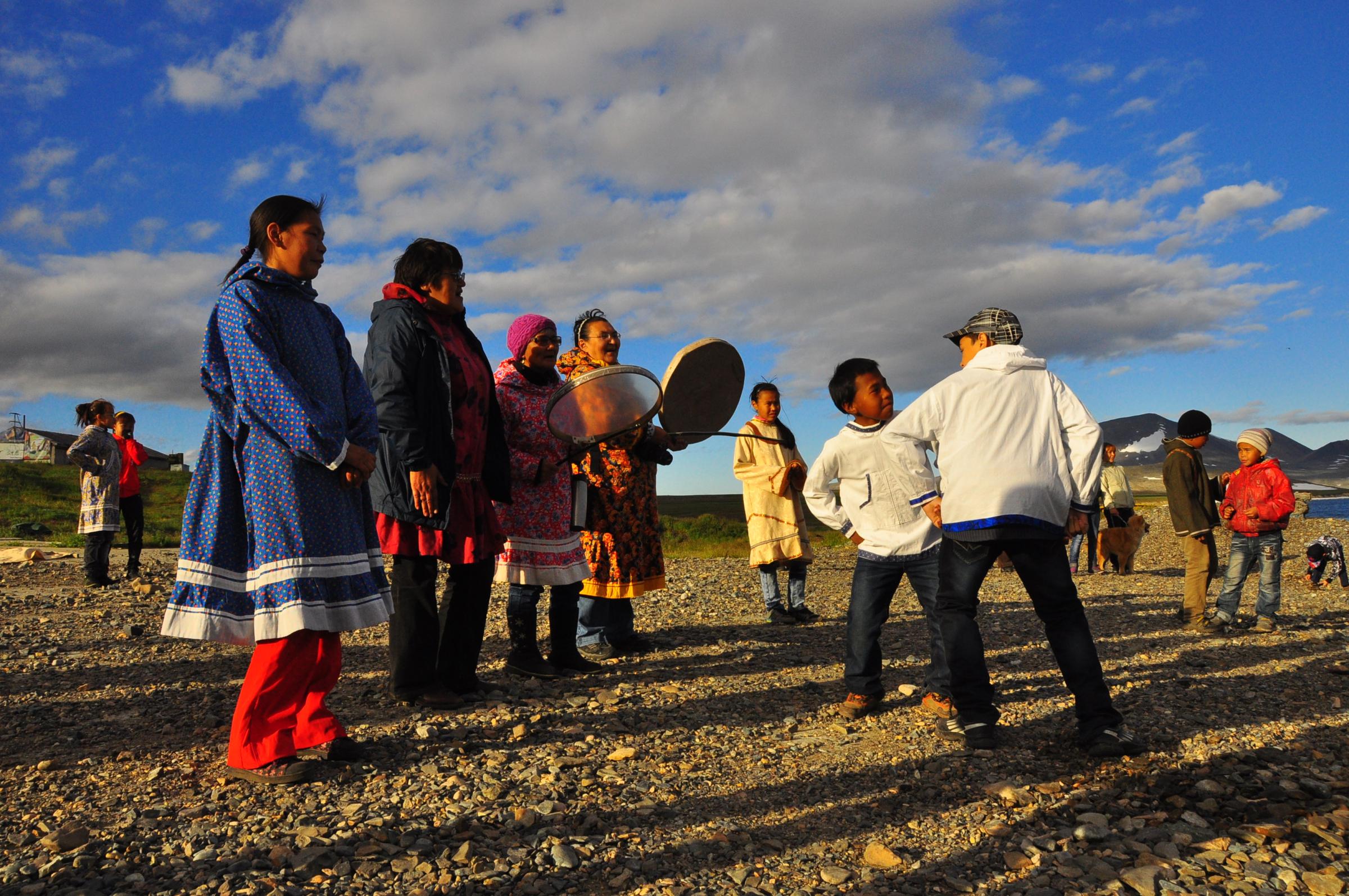
This time of year, indigenous people across the Far North gather to play games and celebrate traditions. Earlier this month, in Fairbanks the took part in the World Eskimo Indian Olympics. There was also a gathering of people from across the Circumpolar north in Inuvik, Canada. This year, native people from Arctic nations joined Russia’s Chukchi and Inuit peoples for the first ever Beringia Arctic Games. It was the largest gathering of it’s kind in a once forgotten corner of the world called Chukotka.
Seven women row a long, wide boat out to the middle of a protected bay off Russia’s Bering Sea coast. A flare soars into the air and they pull with all their strength at long wooden oars. They’re in a race against seven other boats and teams.
These are skin boats, made from hand-carved driftwood and the hides of two female walrus. Valentina Attun stands at the back of one. She mans a giant wooden rudder and counts strokes in Russian to help her team keep a cadence. By the end of the race, her voice is hoarse.
“Of course we are very happy to win the race,” says Attun, “but we had a lot of training,” She says her team is very thankful for the men in her village and her uncle who helped build their boat.
This year, more than 20 athletes from seven Arctic nations including Canada, Norway, the United States, Iceland, Greenland and the Faroe Islands joined the competition. They also took part in other games of agility, endurance and strength that test traditional hunting and survival skills.
In a school gymnasium, competition is fierce during the one arm reach. An athlete balances their entire body on one hand and reaches above their head for a tennis ball, but their legs cannot touch the floor. It’s the same movement you might make if you were gathering bird eggs from a rocky cliff.
Johnny Issaluk is from Iqaluit, on Canada’s Baffin Island. He was surprised to discover Russia’s Chukchi people play the same games as Canada’s Inuit.
“When we start competing, it’s just the same as competing at home. There’s nothing different. I am playing with my homeboys.”
Issaluk says the Russian competition is stiff because they are here to represent their villages. Andrej Kainenen agrees. He is one of 200 residents who lives here in Novoye Chaplino.
Kainenan captains a skin boat for his village. He says the event is good because it brings people together. He says the people in Novoye Chaplino took the time to make their village presentable for guests.
The games were met with traditional drumming and dancing. Olga Leitikai is from a small coastal village to the south. She came to sing. She also works as a liaison between the Russian government and local marine mammal hunters. As more attention is paid to natural resources in the region, she says there is dialogue on all sides.
“Of course the society of Chukotka is changing, like all over the world, it’s changing. I think the most important things is to take a balance between tradition and modern life.”
The challenge to find that balance is familiar for Sam Nystad, a native Sami from Norway’s Finnmark region. “The western world has definitely taken a big chunk in the Sami culture,” he says. “The thing is i was actually impressed by how they preserved their culture and how they wanted to chow it to the world through the games.”
After two days, the official games come to a close, but the residents of Novoye Chaplino aren’t ready to quit.
A group of teenage girls from Greenland sings around a bonfire as Andrej Kainenan shows the crowd a new game. Men carry a giant rock around in a circle until their arms are exhausted.
As a midnight sun sinks below the horizon other local games last well into the night, the same way they have for generations.
